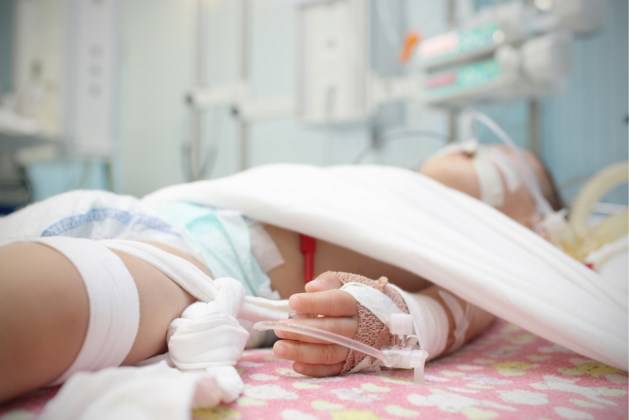Leuven-critically ill children during their stay in intensive care administer artificial nutrition, does more harm than good.

This is the conclusion of a new international study, where the UZ Leuven to participated. Not or very little feeding during the first week does children recover more quickly. The results will probably change the approach to critically ill children worldwide.
Children who are on intensive care units are unable to eat. Assuming that they should eat to get back to gain strength, they already during the first days of their stay artificial nutrition through an IV. The PSU would need to strengthen the muscles, avoid complications and their speed up recovery and goes through a drip immediately to the blood.
An international study, carried out by several hospitals, now shows that the current method is wrong. UZ Leuven, the Sophia children's Hospital in Rotterdam and the Stollery children's Hospital in Edmonton (Canada) did a randomized study in 1 440 critically ill children. They examined or fasting or very little feeding during the first week at the Department of paediatric intensive care was better than a full artificial nutrition through an IV.
Less infections and less organ failure the results of the study are astonishing: they show that the current practice to children early to feed does not contribute to recovery. On the contrary: the children that a nutritional deficit built up by fasting or very little to get food had fewer infections, less organ failure and a faster recovery than the children who got a complete food. The effect was noticeable to everyone, regardless of the type of disease, the age of the children or the hospital in which they were staying. The results are a compelling evidence that the current way of working is not good and will probably the procedures in pediatric intensive care centres around the world changing.
The results were presented at the International Symposium on 15 March 2016 or Intensive Care and Emergency Medicine in Brussels. Prof. Dr. Greet Van den Berghe, head of intensive care at UZ Leuven, spoke in name of the international consortium of hospitals. The renowned New England Journal of Medicine published the results. Professor Van den Berghe and her team delivered in previous studies all the evidence that adults on intensive care better not be artificially fed too quickly during their stay.
Source: http://www.nieuwsblad.be/ by kidr photo: Shutterstock

Reactie plaatsen
Reacties